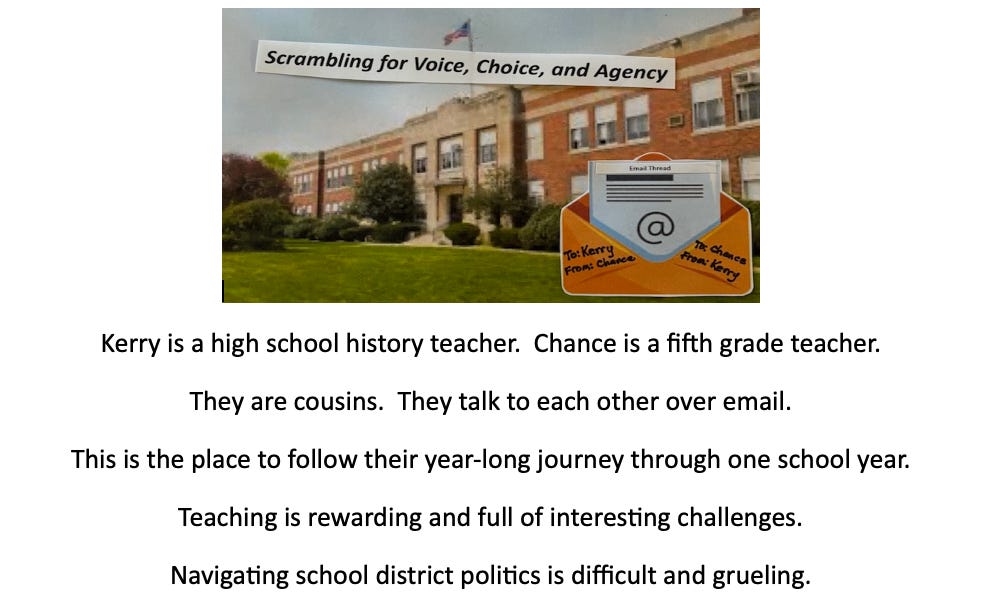Appalling Textbook Lessons
What was the true nature of slavery?
If you missed earlier episodes, the best way to binge-read Scrambling for Voice, Choice, and Agency is to use the Table of Contents links to previous posts.
Kerry
The True Nature of Slavery
To: Chance sent - Gmail 10:22 PM
Hi Chance—
I hardly ever send you emails this late at night, but I can’t contain my dismay. I simply had to report what I discovered on pages 368 and 369 in the textbook under the title of Varying Viewpoints, What Was the True Nature of Slavery?
I have spent the entire evening studying that section of the book.
The section, Varying Viewpoints appear throughout the book. Generally, I appreciate those sections because the variety of points of view gives me on opportunity to encourage the students to go deeper into a subject.
This time I am just appalled and horrified.
First off, in this day and age, the people who were held in bondage should never be called ‘slaves.’ They should always be referred to as people. They were enslaved people. The authors of the textbook must have missed that message, because they frequently use dehumanizing language about people.
Of approximately 750 words, there are only 70 specifically negative things said about the institution of enslaving humans and counting them as property.
Please read that section and tell me what you think about sentences or phrases like these that I have copied from the text:
-black slaves were able to make reciprocal demands of their white owners and to protect a “cultural space” of their own in which family and religion particularly could flourish.
-slave personality……slave as a child-like “Sambo”
-belief that Blacks were inferior and submissive by nature and did not abhor the institution that enslaved them.
-Economic historians have demonstrated that slavery was a viable, profitable, expanding economic system and that slaves constituted a worthwhile investment for their owners.
There is so much more, but I want you to tell me what you think about the actual words in the text.
I suppose there is something to be said about presenting various viewpoints, but don’t you think that some students, especially those who are not able to read critically, might come away with the wrong idea about slavery in this country?
I think the possibility of the students being confused is especially true in this section since it never actually comes out and says slavery was morally, economically, politically, and humanely outrageous.
I am too tired to write more……
Please tell me if I am off-base or if you think putting those words and phrases into a textbook is appropriate.
Kerry




